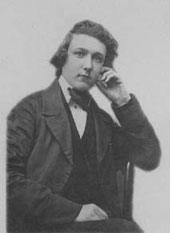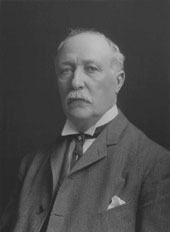Here's a little about one of mine: Robert Keating was my grandmother's father. He came to the U.S. from Ireland, County Wexford to be precise, in 1854. Like many immigrants today, he was ambitious and hard working; unlike many he prospered. For reasons I never learned, he found his way to Buffalo, NY, then a vibrant center of industrial innovation and unconstrained commercial capitalism.
Keating worked the next eleven years for the stove manufacturers, Jewett & Root. He then partnered with the owner's son to branch out into tanneries, selling out to the "leather trust" in 1892. That coup enabled him to go on into banking and he succeeded there as well, becoming a well-respected community leader.
The photos below show the raffish young man in 1854 -- and the successful bourgeois citizen fifty years later.


I don't imagine I would have liked the guy much. But at one time, grit and luck made such transformations possible. Are they still?
I doubt I'd be in a position to answer the last bit..but essentially you aretalking about social mobility and opportunity. Does that still apply in the US? The criteria would be a rigid upper class that oppresses the lower classes for it's own sake..does that apply to the US?
ReplyDeleteHi Zak -- one of the many policies that progressives in the States hold against our current rulers is that they have presided over rapidly increasing economic inequality -- and celebrated it.
ReplyDeleteThe U.S. has historically done without rigid class barriers based on birth status except those created by race. Every immigrant groups has been stimatized as "not-white," at least for a time. The rising inequality today makes it far harder, I suspect, for contemprary immigrants to make the leap into the comfortable middle class (a shrinking sector anyway). It is still, sometimes, possible for the children of immigrants to make that leap.
Even for the more wide open terrain of 19th century, my ancestor managed to get ahead of the normal curve by marrying "above himself" (the daughter of a long time local civic leader) and then partnering with the boss' son. That is -- he did a good job of picking up someone's silver spoon, even if he wasn't born with one.
That's basically what class mobility has always been about -- marrying up (or down), and nothing has really changed all that much.
ReplyDeleteIt seems that the Horatio Alger, Jr. stories, which are commonly thought to be about a hard-working young man making his way in the world, all end up with the hero marrying the boss' daughter.
Dreiser's "Sister Carrie" was revolutionary partly because its heroine doesn't marry up so much as couple up, and she's not treated as an evil person. Her lover does have to pay the social consequences, however, and boy is that a harrowing tale.